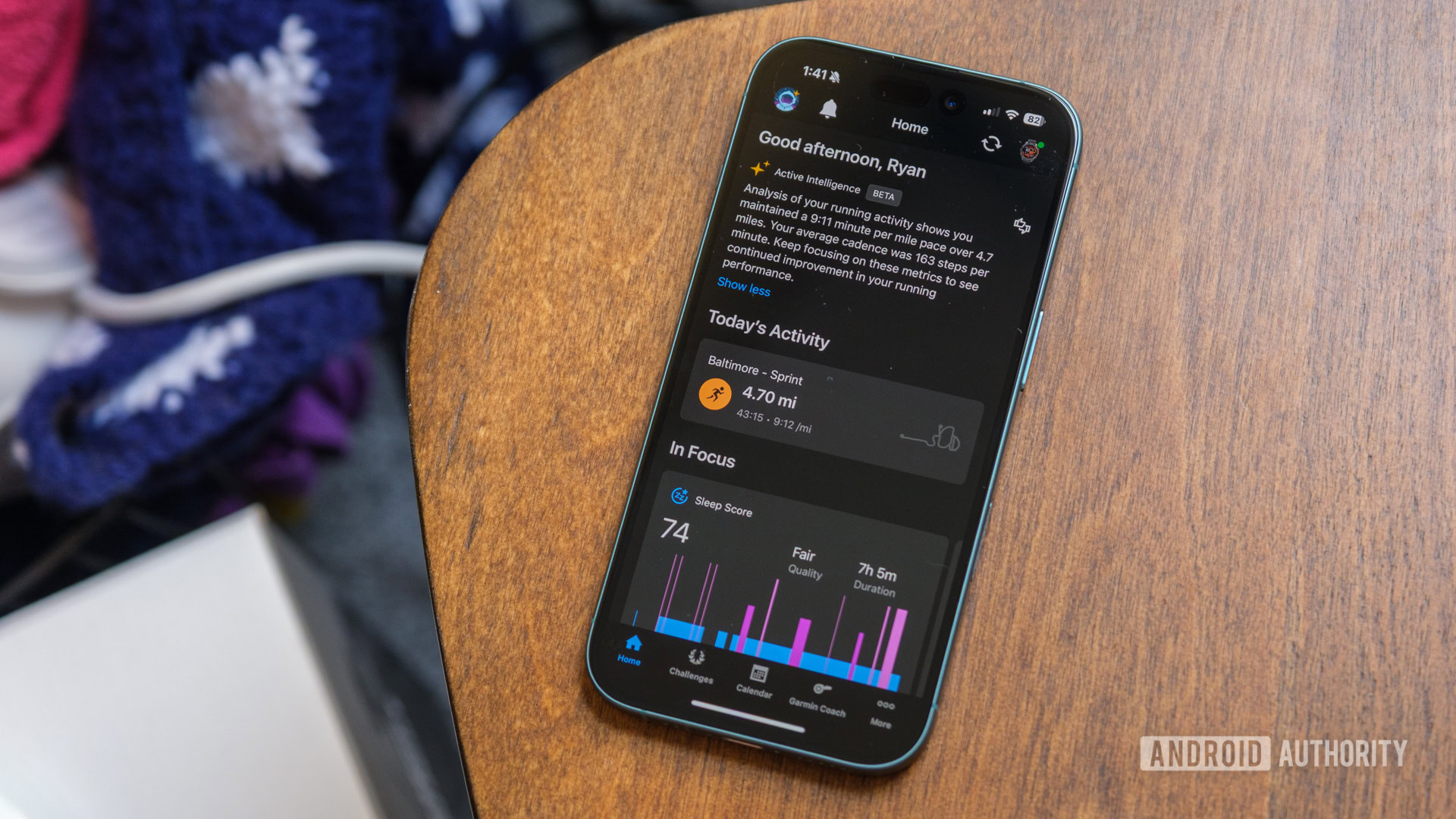Indexing in MySQL for PHP Developers: Do’s and Don’ts
Hi there, fellow developers of PHP! Have you ever noticed that searching your database takes longer than destroying coffee? And your extremely complex PHP tool is sluggish when obtaining facts? The heritage may conceal the problem: MySQL indexes that are either nonexistent or implemented incorrectly. Working with databases takes up a significant amount of our time as PHP developers. Knowledge of how to optimize such interactions is necessary for developing apps that may be fast, scalable, and easy to use. Similarly, indexing is your secret weapon when it comes to MySQL. Suppose that a database table is a vast, disorganized library. To find a certain book (or data row) in the absence of an index, one must search across every shelf. Suppose the same library's catalog is now well-structured. The book? That's your index! By doing this, MySQL may be able to drastically reduce search time by going directly to the relevant information. But indexing, like every powerful tool, has its limitations. Poorly designed indexes may actually worsen performance. For PHP developers, let's examine the necessary Dos and Don'ts of MySQL indexing so that you may effectively utilize this capability. The "Do's": Embrace the Power of Indexing 1. DO Index Columns Frequently Used in WHERE, ORDER BY, and GROUP BY Clauses: This is the top standard for indexing. If your data are frequently filtered, organized, or arranged according to certain columns, then those columns are noteworthy candidates for indexing. SQL -- Imagine a users table SELECT * FROM users WHERE email = 'john.doe@example.com'; -- Index the 'email' column! SELECT * FROM products ORDER BY price DESC; -- Index the 'price' column! SELECT category, COUNT(*) FROM products GROUP BY category; -- Index the 'category' column! Why it matters: These are the primary questions you ask. If MySQL indexes the necessary columns, it can quickly locate and analyze the information without conducting a full table search. 2. DO Consider Composite Indexes for Multiple Column Queries: Sometimes, many columns will be used equally in your query to filter or sort. Compared to individual indexes, a composite index—an index based on two or more columns—may be notably more successful in some circumstances. SQL SELECT * FROM orders WHERE user_id = 123 AND order_date BETWEEN '2024-01-01' AND '2024-12-31'; -- Consider a composite index on (user_id, order_date) Why it matters: A well-designed composite index speeds up lookups, and MySQL may use a single index structure to satisfy the needs of your query. The order of columns in a composite index is crucial! Generally speaking, the most chosen and frequently used columns should appear first. 3. DO Index Foreign Keys: To create relationships between tables, foreign keys are used. This indexing significantly speeds up join processes, which are necessary to extract data from connected tables. SQL -- Assuming 'order_items' table has a foreign key 'order_id' referencing the 'orders' table SELECT o.*, oi.* FROM orders o JOIN order_items oi ON o.id = oi.order_id WHERE o.user_id = 123; -- Ensure 'order_id' in 'order_items' is indexed! Why it matters: If the foreign key does not have an index, MySQL may need to do a full table scan on the child table for each row in the parent table during a join. This is really inefficient! 4. DO Analyze Your Queries with EXPLAIN: Use the EXPLAIN command (also known as DESCRIBE) in MySQL before carelessly creating indexes. It gives you really useful information on how MySQL processes your queries, including whether or not it uses an index and how well. SQL EXPLAIN SELECT * FROM users WHERE email = 'jane.doe@example.com'; Why it matters: You may use EXPLAIN to find bottlenecks and find out whether your indexes are being used. Focus on the key column, which displays the index being utilized, and the type column, which aims for ref, eq_ref, range. 5. DO Regularly Review and Optimize Your Indexes: As your application changes, so should your indexes. Examine your slow query logs on a regular basis and look for trends in your queries. There may be chances to construct new, more efficient indexes or useless ones that may be removed. Unused indexes can be found with the aid of tools such as Percona Toolkit's pt-index-usage. Why it matters: Outdated or ineffective indexes might slow down writing operations and use up extra store space. Think PHP is old school? Think again. In 2025, PHP isn’t just alive — it’s evolving, thriving, and innovating with frameworks that make modern web development faster, cleaner, and more scalable than ever. Detailed Version of PHP & its trending frameworks. The "Don'ts": Avoid These Indexing Pitfalls 1. DON'T Over-Index: Indexing is necessary, but using too many indexes might backfire. INSERT, UPDATE, and DELETE operations are impacted by each index because MySQL

Hi there, fellow developers of PHP! Have you ever noticed that searching your database takes longer than destroying coffee? And your extremely complex PHP tool is sluggish when obtaining facts? The heritage may conceal the problem: MySQL indexes that are either nonexistent or implemented incorrectly.
Working with databases takes up a significant amount of our time as PHP developers. Knowledge of how to optimize such interactions is necessary for developing apps that may be fast, scalable, and easy to use. Similarly, indexing is your secret weapon when it comes to MySQL.
Suppose that a database table is a vast, disorganized library. To find a certain book (or data row) in the absence of an index, one must search across every shelf. Suppose the same library's catalog is now well-structured. The book? That's your index! By doing this, MySQL may be able to drastically reduce search time by going directly to the relevant information.
But indexing, like every powerful tool, has its limitations. Poorly designed indexes may actually worsen performance. For PHP developers, let's examine the necessary Dos and Don'ts of MySQL indexing so that you may effectively utilize this capability.
The "Do's": Embrace the Power of Indexing
1. DO Index Columns Frequently Used in WHERE, ORDER BY, and GROUP BY Clauses:
This is the top standard for indexing. If your data are frequently filtered, organized, or arranged according to certain columns, then those columns are noteworthy candidates for indexing.
SQL
-- Imagine a users table
SELECT * FROM users WHERE email = 'john.doe@example.com'; -- Index the 'email' column!
SELECT * FROM products ORDER BY price DESC; -- Index the 'price' column!
SELECT category, COUNT(*) FROM products GROUP BY category; -- Index the 'category' column!
Why it matters: These are the primary questions you ask. If MySQL indexes the necessary columns, it can quickly locate and analyze the information without conducting a full table search.
2. DO Consider Composite Indexes for Multiple Column Queries:
Sometimes, many columns will be used equally in your query to filter or sort. Compared to individual indexes, a composite index—an index based on two or more columns—may be notably more successful in some circumstances.
SQL
SELECT * FROM orders WHERE user_id = 123 AND order_date BETWEEN '2024-01-01' AND '2024-12-31';
-- Consider a composite index on (user_id, order_date)
Why it matters: A well-designed composite index speeds up lookups, and MySQL may use a single index structure to satisfy the needs of your query. The order of columns in a composite index is crucial! Generally speaking, the most chosen and frequently used columns should appear first.
3. DO Index Foreign Keys:
To create relationships between tables, foreign keys are used. This indexing significantly speeds up join processes, which are necessary to extract data from connected tables.
SQL
-- Assuming 'order_items' table has a foreign key 'order_id' referencing the 'orders' table
SELECT o.*, oi.* FROM orders o JOIN order_items oi ON o.id = oi.order_id WHERE o.user_id = 123;
-- Ensure 'order_id' in 'order_items' is indexed!
Why it matters: If the foreign key does not have an index, MySQL may need to do a full table scan on the child table for each row in the parent table during a join. This is really inefficient!
4. DO Analyze Your Queries with EXPLAIN:
Use the EXPLAIN command (also known as DESCRIBE) in MySQL before carelessly creating indexes. It gives you really useful information on how MySQL processes your queries, including whether or not it uses an index and how well.
SQL
EXPLAIN SELECT * FROM users WHERE email = 'jane.doe@example.com';
Why it matters: You may use EXPLAIN to find bottlenecks and find out whether your indexes are being used. Focus on the key column, which displays the index being utilized, and the type column, which aims for ref, eq_ref, range.
5. DO Regularly Review and Optimize Your Indexes:
As your application changes, so should your indexes. Examine your slow query logs on a regular basis and look for trends in your queries. There may be chances to construct new, more efficient indexes or useless ones that may be removed. Unused indexes can be found with the aid of tools such as Percona Toolkit's pt-index-usage.
Why it matters: Outdated or ineffective indexes might slow down writing operations and use up extra store space.
Think PHP is old school? Think again. In 2025, PHP isn’t just alive — it’s evolving, thriving, and innovating with frameworks that make modern web development faster, cleaner, and more scalable than ever. Detailed Version of PHP & its trending frameworks.
The "Don'ts": Avoid These Indexing Pitfalls
1. DON'T Over-Index:
Indexing is necessary, but using too many indexes might backfire. INSERT, UPDATE, and DELETE operations are impacted by each index because MySQL wants to preserve the index's form.
Why it matters: Try to maintain steadiness. You should only use index columns in your research queries that are truly helpful.
2. DON'T Index Columns with Low Cardinality and High Repetition:
Indexing is often not a good idea for columns that have few unique values (for example, a gender column that only has the entries "Male" and "Female"). In the event that MySQL scans the index and finds many matched rows, a full table scan is more effective.
Why it matters: When applied to columns with high selectivity (many unique values), indexes work best.
3. DON'T Index Columns Used in Functions or Expressions in WHERE Clauses:
MySQL frequently cannot utilize a normal index on a column efficiently if you apply functions or do computations on it in your WHERE clause.
SQL
SELECT * FROM users WHERE LOWER(email) = 'test@example.com'; -- Index on 'email' won't be used effectively
SELECT * FROM orders WHERE YEAR(order_date) = 2024; -- Index on 'order_date' won't be used effectively
Why it matters: The advantage of the index would be lost if MySQL had to execute the function to each row in the table in order to evaluate the condition. Think about rewriting your query or indexing a column that has already been computed.
4. DON'T Index BLOB or TEXT Columns Fully (Unless Necessary):
Large text or binary data formats can be extremely expensive for common search patterns and can take up a lot of storage space when indexed. For text-based searches, if necessary, take into account full-text indexing.
Why it matters: Full-text indexes were created especially for text-based searches. Large text columns are frequently wasteful when using standard indexes.
5. DON'T Forget About Data Types:
Make that the data types of the indexed columns and the columns you're comparing in your WHERE clause are the same. MySQL may not be able to use the index if there are implicit type conversions.
PHP
// Assuming 'user_id' is an integer in the database
$userId = "123"; // Note: This is a string in PHP
$query = "SELECT * FROM orders WHERE user_id = :user_id"; // Potential index usage issue
Why it matters: MySQL may be forced to use a complete table scan rather than the index due to type differences.
Bringing It All Together: Indexing in Your PHP Workflow
As PHP developers, we frequently discuss the usage of ORMs like Doctrine or Eloquent (Laravel) with MySQL.
Although these tools abstract away some of the SQL details, it is still important to understand indexing concepts.
Consider creating indexes for the underlying database structure based on the queries generated by your ORM.
Laravel, Symfony, Livewire, PHP’s ecosystem is shifting fast, and the frameworks leading the charge aren’t just trending — they’re transforming how we build for the web.
Practical Tips for PHP Developers:
Use database migration tools: In your migration files, specify your indexes to ensure that your database structure is version-controlled and consistent across environments.
Monitor slow query logs: Your MySQL slow query logs should be regularly reviewed in order to identify slow queries and investigate potential indexing issues.
Profile your application: Improve your database queries and indexes by using profiling tools to find performance bottlenecks.
Communicate with your DBA (if you have one): As database optimization specialists, database administrators may provide valuable guidance on your indexing strategy.
Conclusion: Indexing for a Faster Future
An understanding of MySQL indexing is necessary for every PHP developer who wants to build scalable and efficient applications.
Understanding the "Do's" and avoiding the "Don'ts" outlined in this lesson will greatly enhance the efficiency and speed of your database interactions.
A better user experience and a more dependable program will come from this.
See how your PHP programs take off once you carefully construct those indexes and assess your queries. Enjoy your time spent coding!








































































































































































![[The AI Show Episode 146]: Rise of “AI-First” Companies, AI Job Disruption, GPT-4o Update Gets Rolled Back, How Big Consulting Firms Use AI, and Meta AI App](https://www.marketingaiinstitute.com/hubfs/ep%20146%20cover.png)
































































































































































































































.jpeg?#)






-Pokemon-GO---Official-Gigantamax-Pokemon-Trailer-00-02-12.png?width=1920&height=1920&fit=bounds&quality=70&format=jpg&auto=webp#)




























_Wavebreakmedia_Ltd_IFE-240611_Alamy.jpg?width=1280&auto=webp&quality=80&disable=upscale#)




















































































































![Apple Shares Official Trailer for 'Echo Valley' Starring Julianne Moore, Sydney Sweeney, Domhnall Gleeson [Video]](https://www.iclarified.com/images/news/97250/97250/97250-640.jpg)


































































































